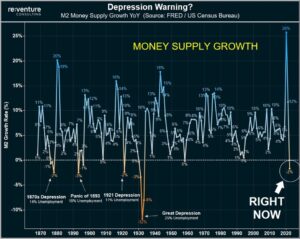Things I’ve Been Thinking About Lately

What Will Israel Do Now?
From Michael Snyder on Iran’s direct attack on Israel last week. I thought this was a good, early assessment of the quandary Israel is in now:
Just like October 7th, the shocking attack on Israel that just took place altered the course of history. This was the first time that Iran ever attacked Israel directly, and I was flooded with emails by readers that were concerned about World War III. So now that the Iranian attack is over, what will Israel do now? That is the big question. If Israel directly attacks Iran, the Iranians will inevitably respond and the conflict could spiral out of control. But if the Israelis do not strike back, they will look weak and the Iranians could feel like they will be able to get away with similar things in the future.
Read more here.
Two Movies I’m Not Sure I Can Recommend
K and I watched two movies on two consecutive evenings last week. Given our schedules (often still working after dinner), this was a rare treat. We selected the two out of a list of five that had been recommended to K. Both were foreign films. And both had won numerous awards.
The first one, The Taste of Things, was a French period piece set in 1889. It was, in principle, about the professional and romantic relationship between a wealthy gourmand and his cook. About half of the movie consisted of scenes in which the two protagonists, along with some helpers, gathered ingredients and prepared elaborate gourmet meals. Another 40 percent consisted of scenes wherein the gourmand and four or five of his gourmand friends consumed the meals and chatted about great cooks of the past and great wines of the present. About 10 percent of the movie was about the relationship itself, in which a dash of flirting, a dusting of yearning, and a soupçon of lovemaking takes place. As far as K and I could discern, nothing else of consequence happened in the entire two hours and 20 minutes.
After failing to comprehend or much appreciate The Taste of Things, we were more optimistic about the film we saw the following evening: Perfect Days. In this one, the protagonist was a 60-something Japanese man who lived in a small apartment and whose job it was to clean public toilets in Tokyo. The first half-hour followed a day’s activity in great detail from the moment he woke up until he went to sleep. Nothing unexpected happened that day, so we were hopeful for something engaging and dramatic to unfold when the film moved on to his next day. Day Two, however, was, in almost every respect, the same as Day One. This went on for the full length of the two-hour movie.
There was a brief scene where the protagonist had a nearly wordless conversation with his estranged sister, and a day when his estranged sister’s daughter came to live with him and accompany him on one of his endlessly routine days. That was it. I’m all about subtlety in fiction and film. I have no problem being required to see below the surface. But for the life of me, I couldn’t find enough of either to help me understand why Perfect Days has been so widely well-regarded.
If you’ve seen either of these movies and have an idea of why it earned the plaudits it received, let me know.
Illegal Immigration by the Numbers
You would think it would be easy to find out how many illegal immigrants have come into the US since Joe Biden took office 2020. It’s not.
What can be said is that the US Border Patrol has reported “encountering” 8.7 million undocumented migrants, of which 7.2 million came across the southern border and 1.5 million came from other locations. However, according to several sources, of that 8.7 million, as many as 2.8 million were sent back. That would bring the total illegal immigrants that the Border Patrol released into the country to about 6 million.
But the complexity doesn’t end there. Those numbers do not include the “getaways” – people that managed to enter the US illegally without being apprehended by the Border Patrol – which must be somewhere between 600,000 and 1.8 million.
So, what’s the actual number? Considering the biases of those releasing the numbers, I’m thinking it is more than 7 million but probably less than 10 million. What do you think?
As Promised: A Fact About Real Estate Your Broker Doesn’t Want You to Know
In the April 8 issue of this blog, I said:
“Watch this short clip. It’s a teaser for some sort of information product – but what these two men are referring to is probably the most important secret in selling houses. I’ll tell you what it is in next week’s main issue.”
So, here is the secret…
The most important factor in selling a house – or any product whose financial value can be easily determined through a simple internet search – is pricing it right. But brokers seeking to list your property won’t tell you that.
They will most likely begin by telling you that your house is worth far more than it really is. They will do this to get you excited about signing with them. Once they have the listing, they will do everything they can to get you to sell your place as cheaply as you will let them.
You may think that, because they are on commission, they would want to get the highest price possible for your house. But that’s not how brokers get rich. They get rich by getting lots and lots of listings and then turning them over (selling them) as quickly as possible. And the best way for them to sell your house quickly is to get you to lower your price… as soon as they possibly can.
And they will start doing that as soon as you sign the contract.
“About the price…” they might say.









